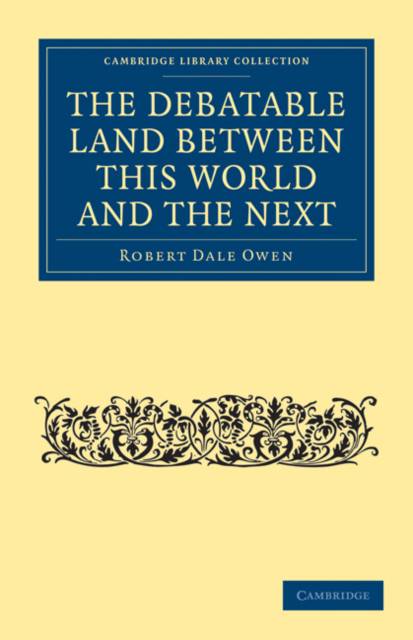
- Afhalen na 1 uur in een winkel met voorraad
- Gratis thuislevering in België vanaf € 30
- Ruim aanbod met 7 miljoen producten
- Afhalen na 1 uur in een winkel met voorraad
- Gratis thuislevering in België vanaf € 30
- Ruim aanbod met 7 miljoen producten
Zoeken
€ 90,45
+ 180 punten
Omschrijving
Robert Dale Owen (1801-1877) left Scotland at the age of twenty-four to help run an experimental colony in New Harmony, Indiana, established by this father Robert Owen, the social reformer. While in the United States, he became a prominent proponent of slave emancipation and public education, eventually joining the Indiana legislature before moving on to become a member of the United States Congress, which led to his posting as a diplomat in Naples. In addition to his political interests, Owen was fascinated with the world of spiritualism. In this work, published in 1871, he assesses Protestantism and Catholicism and considers how spiritualism can 'confirm the truths and assure the progress of Christianity'. He goes on to explain at length the characteristics of spiritualism, including the physical manifestations and identity of spirits, as well as his own experience of apparitions.
Specificaties
Betrokkenen
- Auteur(s):
- Uitgeverij:
Inhoud
- Aantal bladzijden:
- 466
- Taal:
- Engels
- Reeks:
Eigenschappen
- Productcode (EAN):
- 9781108073110
- Verschijningsdatum:
- 19/05/2011
- Uitvoering:
- Paperback
- Formaat:
- Trade paperback (VS)
- Afmetingen:
- 140 mm x 216 mm
- Gewicht:
- 585 g

Alleen bij Standaard Boekhandel
+ 180 punten op je klantenkaart van Standaard Boekhandel
Beoordelingen
We publiceren alleen reviews die voldoen aan de voorwaarden voor reviews. Bekijk onze voorwaarden voor reviews.








